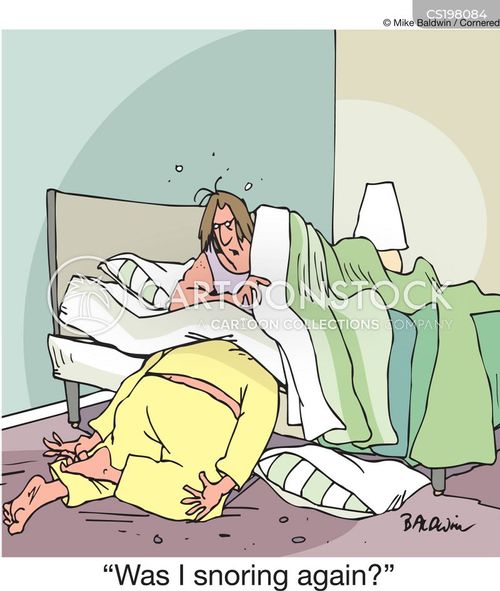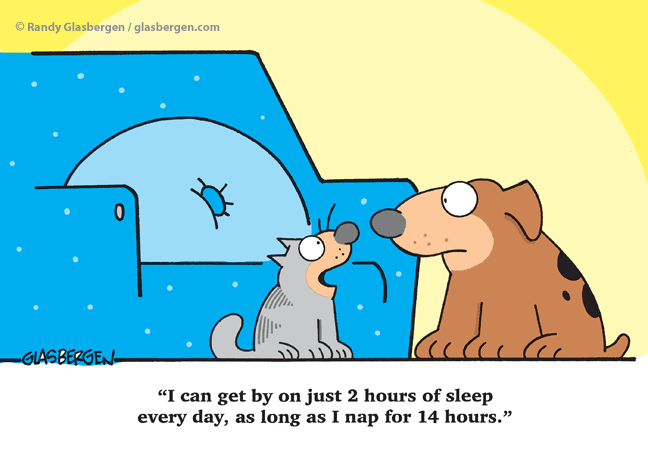Unusual Sleep Facts That Might Keep You Awake

The longest period of wakefulness, 18 days, 21 hours, and 40 minutes, was recorded during a competition for the longest time spent on a rocking chair. The winner experienced hallucinations, vision disturbances, speech impairments, and memory lapses as a result.
It's sometimes impossible to determine if a person is asleep without a medical examination. People often fall asleep for several seconds with their eyes open, without even realizing it.
If you fall asleep in less than 5 minutes in the evening, you may be sleep deprived. The ideal time for falling asleep in the evening is 10 to 15 minutes. This indicates that you are tired enough to sleep soundly at night but not excessively sleepy during the day.
The birth of a child typically results in parents losing 400-750 hours of sleep in the first year.
It is likely that you will experience insomnia later in life if you prioritize harmful habits, such as oversleeping, especially when awakened by your baby.
Studies on human sleep, leading to the discovery of the so-called "rapid eye movement (REM) phase," were not conducted until 1953 due to the significant paper consumption involved in such research.
Fast sleep occurs in bursts throughout the night, totaling up to 2 hours, typically starting around the 90-minute mark of sleep.
Dreams, previously thought to occur only in the REM phase of sleep, also occur in other phases. A person may experience dreams at any point during sleep but simply doesn't realize or remember them.
Dreams in the REM phase are usually strange and illogical, while those in the slow-wave phase are repetitive and more akin to contemplation with a hint of imagination — for instance, a persistent feeling of forgetting something.
Certain eye movements during the REM phase correspond to specific movements in our dreams, suggesting that our brains partially watch dreams like a movie.
While it's unknown for sure whether animals dream, sleep phases have been observed in them as well.
Elephants sleep standing during the slow-wave phase and lie down during the REM phase.
Some scientists believe that we dream in order to consolidate daytime experiences into long-term memory. Thus, we dream to remember important information. Others argue that we dream about irrelevant things and events to cleanse the brain of unnecessary memories and duplicates.
Dreaming may not necessarily carry any useful load but rather be a byproduct of consciousness and sleep.
The fast phase of sleep may play an important role in the development of a healthy brain. Prematurely born children spend up to 75% of their sleep time in the fast phase, while their healthy siblings spend only 60%. Similarly, newborn rats and hamsters spend their entire sleep in the fast phase, while newborn piglets, which develop faster, lack the fast sleep phase.
Interestingly, a study from 1988 found that shining a bright light on the back of the knee can disrupt a person's sleep rhythm and biological clock. However, scientists still cannot provide a precise explanation for this phenomenon.

At the British Ministry of Defense, a method was devised to adjust soldiers' biological clocks so that they could stay awake for up to 36 hours. Tiny light emitters were embedded in goggles in such a way that they illuminated the edges of the eye's retina with light similar to sunlight. This created a constant sensation of early morning for the soldier.
Continuous wakefulness for 17 hours reduces productivity and weakens attention, as if you had 0.05% alcohol in your blood.
International studies have shown that at least 20% of car accidents are caused by fatigue and lack of sleep.
Sleeping in a noisy environment can reduce a person's immune properties, even if they don't wake up from the noise. Noise, especially during the first and last two hours of sleep, can disrupt the sleep cycle and the body's natural clock.
Self-induced sudden awakening is caused by the release of the hormone adrenocorticotropic into the bloodstream.
Some sedative medications, particularly barbiturates, suppress the rapid eye movement (REM) stage of sleep, leading to long-term disruptions in mental health and sleep patterns.
The use of sedatives is justified from a psychological standpoint only if insomnia is caused by feelings of significant loss or intense stress.
The faint light from digital electronic clocks is sufficient to disrupt sleep patterns, even if you're unaware of it and continue sleeping. This light "turns off" the sleep mode in the brain and reduces the concentration of sleep-stimulating substances.
To sleep well, a cool environment is needed. Body temperature and sleep cycles are directly related. That's why on hot summer nights, we struggle to fall asleep and get little sleep. The optimal blood supply to the brain occurs at ambient temperatures of 18-30 degrees Celsius. As we age, this range narrows to 23-25 degrees Celsius—this is one of the reasons why elderly people often experience sleep disturbances.
If you have a little grog (a hot alcoholic beverage) before bed, it may help you fall asleep, but the sleep will be superficial, and the health benefits will be insignificant.
After five nights of poor sleep, a shot of alcohol will affect you as strongly as two shots would if you had slept well.
Humans sleep 3 hours less than their closest animal relatives - chimpanzees, gorillas, orangutans. These primates sleep for at least 10 hours a day.
Ducks can sleep with one half of their brain while the other remains alert to their surroundings.
Ten percent of people who snore suffer from a sleep disorder called apnea. With this condition, a person briefly stops breathing about 300 times per night, increasing the risk of cardiovascular disease.
Humans snore only during the slow wave sleep phase.
Teenagers require sleep, much like young children, about 10 hours per day. Elderly people need about 6 hours of sleep. For middle-aged adults, the optimal duration of sleep is 8 hours.
Some studies suggest that women need an additional hour of sleep compared to men, which is attributed to their tendency toward depression and psychosis.
Victorian era records show that people slept an average of 10 hours per day, with sleep patterns shifting depending on the daylight.
Most of the information about sleep has been learned by scientists in the last 25 years.
Under-rested young people have lower work productivity than older individuals.
Many experts point out that one of the main causes of sleep disorders is round-the-clock access to the Internet.
Wishing you restful sleep, productive wakefulness, and good health!



